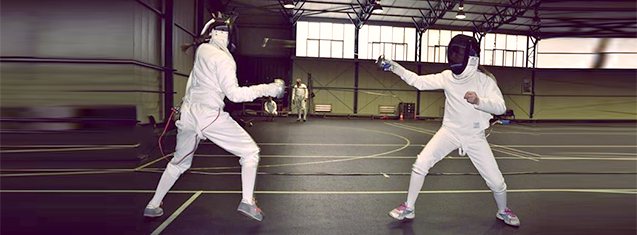
The ultimate clash of the fencing titans Photo credits: Robynne van Zuydam.
Willem Brink and Wanda Verster fenced their hearts out at Free State Closed Competition, winning gold medals in the men’s and women’s category, respectively. These University of the Free State students dominated opponents from the Vrystaat Amateur Skerm Klub (VASK).
Fencers from the VASK retaliated bravely in defense of their honour on Saturday 12 September 2015, with Jurgen Schroder taking home a Silver medal. His team mates, Ruan Coetzee-Schroder and Shaeffer Georgiou, shared the Bronze medal. A winning performance placed VASK’s Danielle Ceronio and Stella Heyns in the Bronze realm. Kovsie Fencing’s Kayla de Gouveid shared the spot with Stella as a bronze recipient.
It was a clash of the titans as 27 participants formed opposing teams. The University of the Free State (UFS) team, who hosted the competition, showed the guests no sign of mercy as they triumphed.
Wanda was impressed by the UFS’s performance. “The students performed very well, especially considering that most of them started fencing just this year.”
“Willem Brink, who finished with gold, started fencing in 2012. He finished with a Bronze medal at the Free State Closed competition held earlier, in May 2015 The first fencer to reach 15 wins,” said the Kovsie Fencing representative.
The club will represent our university at the University of Pretoria (TUKS) Open where fencers from the entire country will compete on 25 and 26 September 2015. The club is also preparing for the University Sports South Africa (USSA) tournament and the Limpopo Open that take place in November and December, respectively. These competitions serve to pave the way for the July 2016 nationals, where Kovsies hope to make their mark as champions.